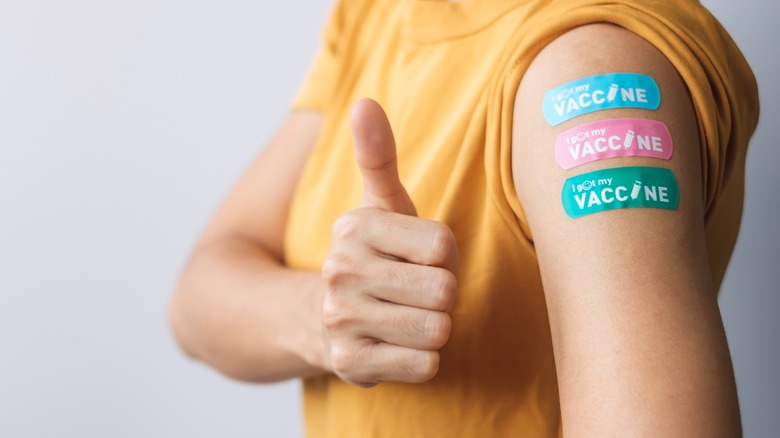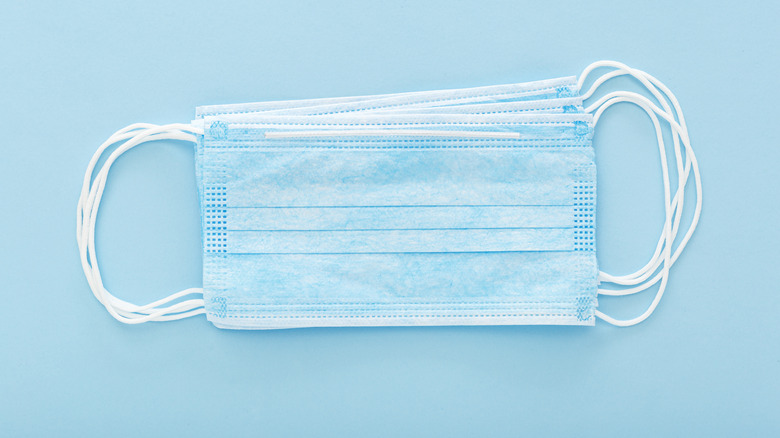Don't Stop Doing This After You Get The COVID-19 Booster Shot
As the highly transmissible Omicron variant of COVID-19 continues to circulate and spread across the U.S., it's more important than ever to get vaccinated against the virus and get a booster shot. Vaccination can provide protection against the virus and reduce the risk of severe illness, hospitalization, and even death (via CNBC). A booster shot, however, can provide an added layer of protection by substantially strengthening your immunity and increasing your antibody levels.
This means that even if you test positive for COVID-19, you're much less likely to be symptomatic than those who remain unvaccinated. "[Omicron] is going to rip right through the population," Dr. David Ho, a virologist and professor at Columbia University, told CNBC. "Those who are vaccinated and boosted are largely going to do OK, even if infected. Those who are vaccinated and not boosted probably will have it slightly worse. But I really fear for those who are not vaccinated." According to the Centers for Disease Control and Prevention (CDC), booster shots are currently recommended for all adults in the U.S, especially those who are considered high-risk or immunocompromised.
Don't get rid of your masks
While getting a booster shot can significantly increase your immunity against COVID-19, you shouldn't throw your masks away just yet. With the Omicron variant quickly spreading across the country, experts agree that masking is still necessary (via Cleveland Clinic). Booster shots may provide a robust immune response, but no vaccine is 100% effective. Although they can substantially reduce your risk of being symptomatic or requiring hospitalization, the vaccines won't necessarily prevent infection, especially now that the Omicron variant is the dominant strain of COVID-19 in the U.S. (per CNBC).
Wearing a mask will also reduce your risk of spreading the virus to others if you develop an asymptomatic infection. As a result, wearing a mask in public indoor settings is still one of the best ways to reduce transmission and help prevent any breakthrough cases of COVID-19. "Face masks and physical distancing will need to continue into the foreseeable future," infectious disease specialist Dr. Kristin Englund told Cleveland Clinic. "Unfortunately, getting vaccinated does not instantly mean we can go back to how life was before. The vaccines are certainly a step in the right direction — and a reason to celebrate — but we're not out of the woods yet."


